TOP 5 INNOVATIVE FOOD BUSINESS IDEAS IN IRELAND [2024 GUIDE]
Are you an aspiring food business owner in Ireland looking to tap into the thriving food industry landscape? With the demand for diverse and innovative food options on the rise, starting a successful food business requires a blend of creativity and strategic planning. In this guide, we will explore the top 5 food business ideas specifically tailored for the Irish market.
Ireland boasts a vibrant food sector, with a rich culinary heritage and a growing appetite for new and exciting gastronomic experiences. As the food scene continues to evolve, there is an increasing demand for unique food businesses that offer fresh perspectives and flavors.
Innovation is key in standing out in the competitive food industry in Ireland. Whether you're dreaming of launching a trendy food truck, a cozy coffee shop, or a specialty bakery, thinking outside the box and catering to the changing tastes of consumers can set your business apart.
This guide is designed to provide valuable insights and inspiration for individuals looking to venture into the food business arena in Ireland. From exploring trending food concepts to understanding consumer preferences, this resource aims to equip you with the knowledge and tools needed to launch a successful food business in this dynamic market.
FOOD BUSINESS LANDSCAPE IN IRELAND
Ireland's food business landscape is a flourishing blend of tradition and innovation, making it an exciting arena for aspiring food entrepreneurs. The year 2023 saw Ireland embracing sustainability and local sourcing, reflecting a global shift towards more environmentally friendly and health-conscious eating habits. A notable trend is the rise of farm-to-fork experiences, which highlight the country's commitment to supporting local agriculture and providing consumers with fresh, traceable produce. This movement not only boosts the local economy but also offers a unique selling point for businesses tapping into the growing demand for authenticity and quality.
Moreover, the plant-based sector in Ireland has seen exponential growth, mirroring international patterns. The Irish plant-based food market is expected to continue its upward trajectory in 2024, driven by increasing consumer awareness around health, sustainability, and animal welfare. This surge has encouraged a proliferation of vegan restaurants, plant-based product lines, and innovation in food technology, presenting fertile ground for entrepreneurs.
Another key aspect of Ireland's food industry is its booming artisanal food scene. Artisans producing cheese, bread, and craft beverages have gained both national and international recognition, underscoring Ireland's reputation as a hub of culinary excellence. The government's support, through initiatives like the "Taste the Island" campaign, has been instrumental in promoting Irish food and drink producers, further enhancing the sector's visibility and appeal.
Ireland's food business landscape in 2023 and 2024 is characterized by a harmonious blend of heritage and forward-thinking, offering abundant opportunities for those ready to explore its depths. With a strong emphasis on quality, sustainability, and innovation, Ireland is paving the way for a new era of gastronomic entrepreneurship.
LOCALIZED FOOD TRENDS
The localized food trends in Ireland are a testament to the country's evolving food scene, where the integration of Irish culture and a commitment to sustainability are central themes. These trends not only reflect the preferences of the local populace but also the global shift towards more conscious consumption patterns. Businesses that adeptly blend traditional Irish elements with modern culinary innovations are poised to thrive in this dynamic environment.
Ireland's rich gastronomic heritage offers a treasure trove of flavors and ingredients that local food businesses are tapping into. Ingredients like potatoes, which are synonymous with Irish cuisine, along with the bounty of the sea including salmon, oysters, and mussels, and the country's renowned dairy products, are being creatively utilized to craft dishes that speak to both tradition and contemporary tastes. Dishes like colcannon (a blend of mashed potatoes and kale or cabbage), boxty (a traditional Irish potato pancake), and seafood chowder are being reimagined in exciting new forms. Restaurants and food producers are infusing these traditional dishes with modern twists, thus appealing to a broad audience that values both authenticity and innovation.
For example, the growth of gastropubs and artisanal eateries like The Woollen Mills in Dublin, which offers a modern take on traditional Irish dishes, underscores this trend. These establishments are not only culinary hotspots but also cultural ambassadors, showcasing the depth and versatility of Irish cuisine to both locals and tourists alike.
Sustainability is another significant trend shaping the Irish food business landscape. With increased awareness around the impacts of food production and consumption on the environment, there is a heightened demand for locally sourced, organic, and environmentally friendly products. This shift is evident in the emergence of farm-to-table restaurants, organic cafes, and food businesses that prioritize low carbon footprints and ethical sourcing practices.
Businesses like The Happy Pear, a plant-based eatery and food producer in Greystones, have gained popularity by focusing on healthy, sustainable eating. Their commitment to organic ingredients, local sourcing, and community-building activities like free cooking demos and wellness workshops resonate deeply with eco-conscious consumers.
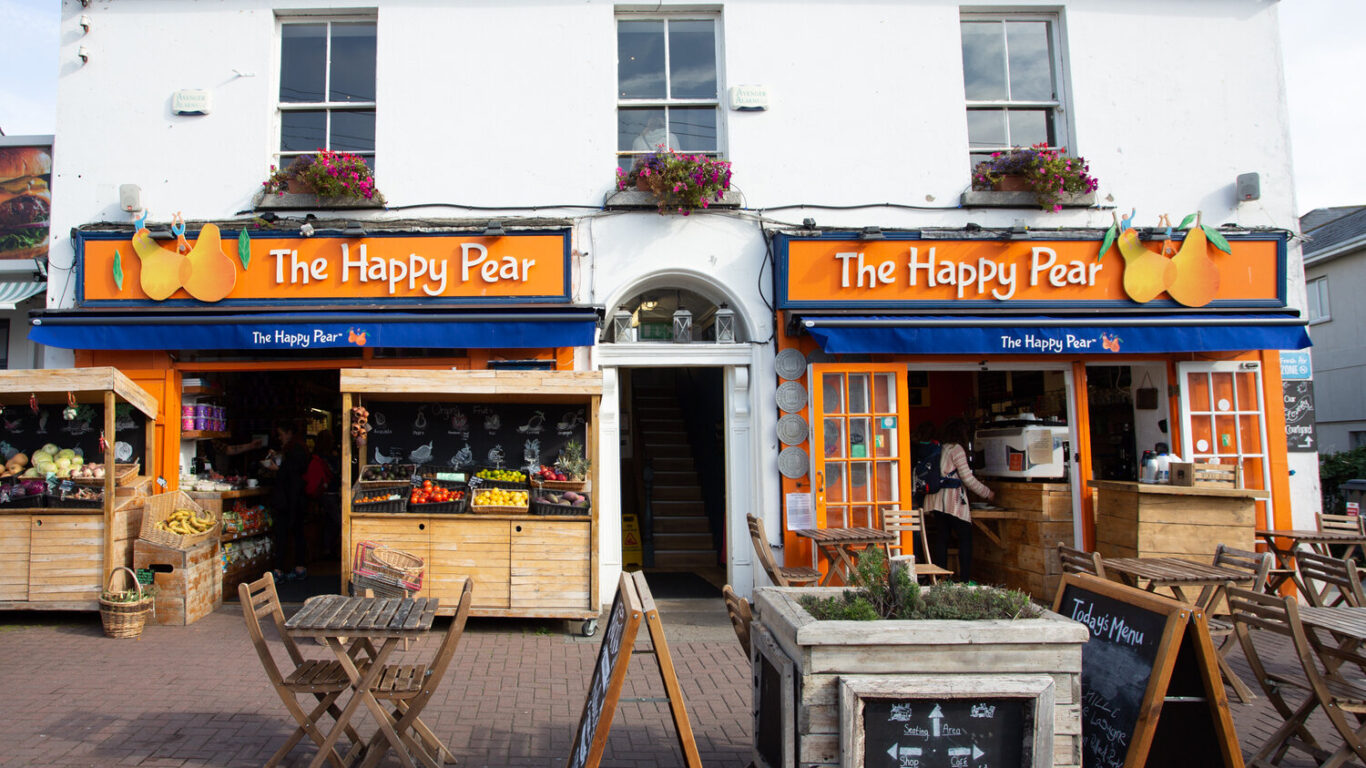
Moreover, initiatives such as Bord Bia's Origin Green program, which helps Irish food and drink producers to become more sustainable, play a crucial role in promoting these practices. Through such initiatives, businesses can gain certification and recognition for their sustainable efforts, further attracting a clientele that values ethical and environmental considerations in their food choices.
In conclusion, the localized food trends in Ireland are characterized by a deep respect for tradition coupled with a forward-looking approach to sustainability and ethical consumption. By embracing these trends, food businesses can not only contribute to a more sustainable future but also enrich Ireland's culinary landscape with innovative and culturally resonant offerings.
TOP 5 FOOD BUSINESS IDEAS FOR IRELAND IN 2024:
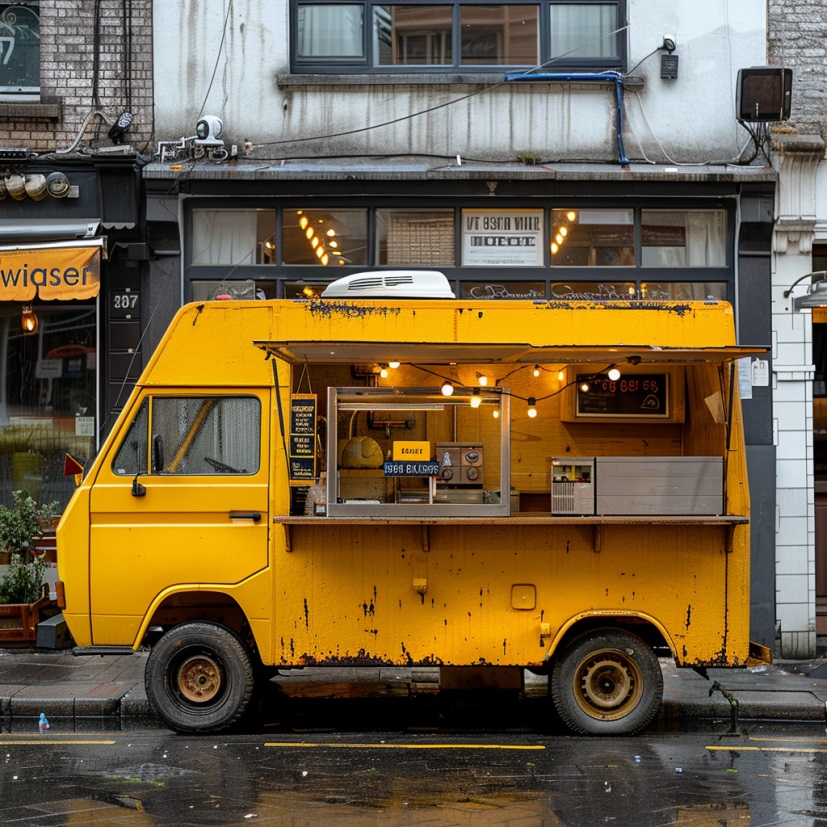
Food Trucks:
Food trucks have surged in popularity across Ireland, revolutionizing the local food scene with their unique, convenient dining options. This burgeoning trend offers entrepreneurs a flexible, cost-effective entry into the food industry, blending the love for gourmet street food with Irish culinary traditions. Starting a successful food truck business in Ireland is not just about cooking; it requires creativity, strategic planning, and a keen understanding of current food trends.
The heart of any food truck is its menu. Successful food trucks often have a focused, innovative menu that differentiates them from traditional dining establishments and other trucks. Irish food entrepreneurs can explore a fusion of international cuisines with local flavors, creating dishes that intrigue and delight. Think beyond the classic offerings; consider incorporating artisanal ingredients, vegan options, or gluten-free dishes to cater to diverse dietary preferences. Unique, Instagram-worthy food presentations can also increase your visibility and appeal, especially among younger consumers.
Choosing the right location is critical for attracting a steady flow of customers. High foot traffic areas such as business districts, shopping centers, and near universities are ideal. Participating in local events, festivals, and farmers' markets can also provide lucrative opportunities to reach more customers. Moreover, collaborating with local businesses for pop-up events can enhance your visibility within the community.
Staying abreast of the latest food trends is essential for keeping your menu fresh and exciting. Sustainability, plant-based diets, and health-conscious eating are significant trends in Ireland. Offering dishes that align with these preferences can attract a dedicated customer base looking for ethical and healthy eating options. Utilizing seasonal, locally-sourced ingredients not only supports the local economy but also appeals to consumers' growing interest in the provenance of their food.
For a deeper dive on setting up a Food Truck Business, see our article:The Definitive Guide to Starting a Food Truck Business in Ireland
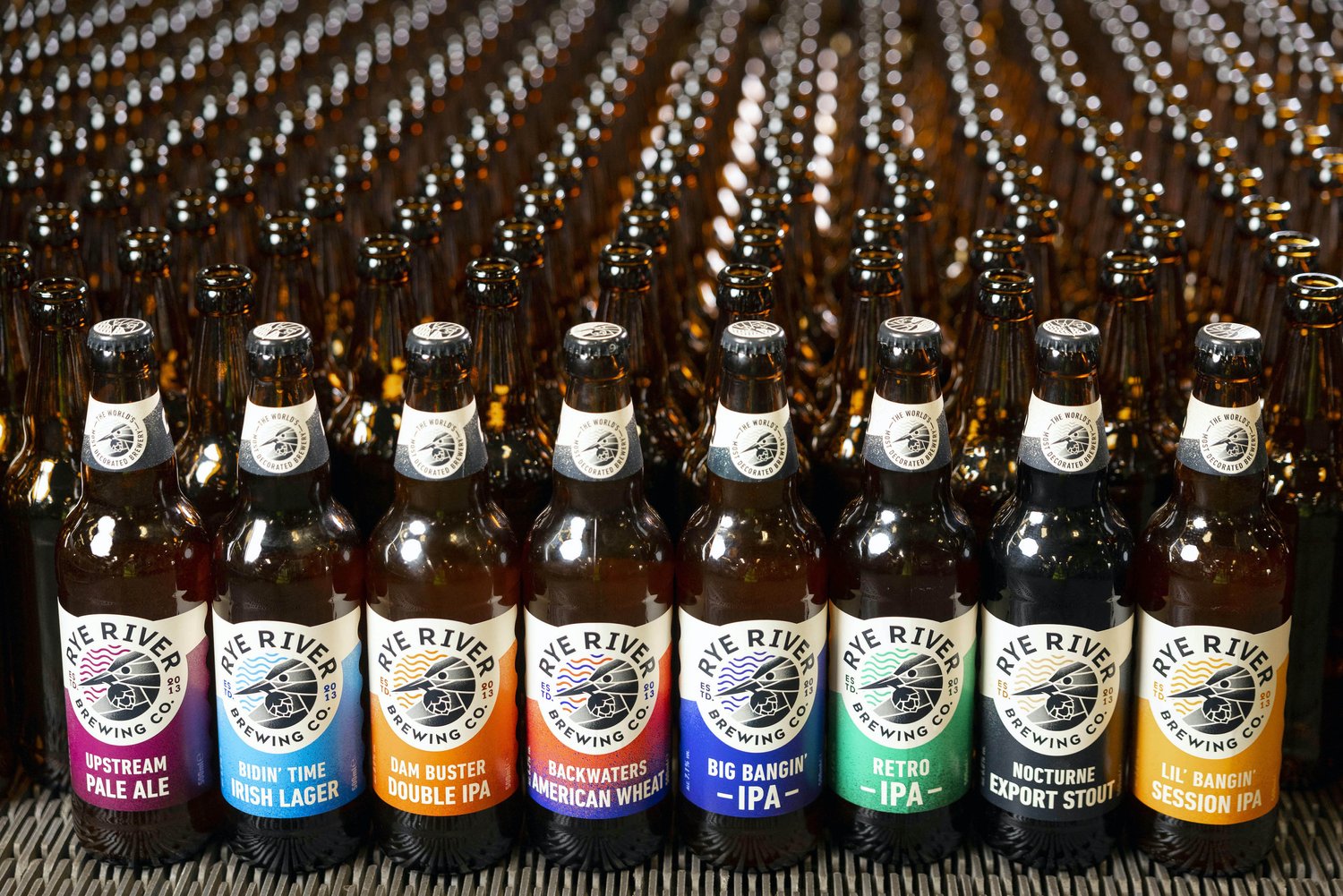
Craft Beer Production
Craft beverage production has emerged as a significant trend in Ireland, capturing the hearts of enthusiasts and connoisseurs alike. This artisanal industry, encompassing brewing, distilling, and the creation of unique, handcrafted drinks, offers a promising avenue for entrepreneurs passionate about quality and craftsmanship. The allure of craft beverages lies in their local production, distinctive flavors, and the personal touch of their creators, setting them apart from mass-produced counterparts.
Embarking on a craft beverage business journey requires more than just a passion for exceptional drinks; it necessitates a deep understanding of the production processes, from brewing to distilling, and a commitment to adhering to stringent regulatory standards. Success in this industry hinges on an entrepreneur's ability to blend creativity with expertise, transforming traditional recipes into innovative concoctions that captivate the market.
The rising demand for locally-produced, artisanal beverages in Ireland presents a golden opportunity for aspiring craft beverage entrepreneurs. Consumers are increasingly drawn to the authenticity and storytelling behind these products, valuing the connection to local traditions and the sustainability of small-scale production. This shift in consumer preferences opens up lucrative market niches for those ready to venture into the craft beverage space.
To kickstart your craft beverage business, it's crucial to equip yourself with comprehensive knowledge and insights. From understanding the intricacies of the brewing or distilling process to navigating the legal landscape of the beverage industry, preparation is key. Aspiring entrepreneurs should explore resources and tips available for starting their craft beverage journey, such as those found on specialized websites and platforms dedicated to the craft brewing community in Ireland.
By embracing the craft beverage movement, you can contribute to the rich tapestry of Ireland's beverage industry, creating drinks that not only quench thirst but also tell a story. Whether it's through the revival of ancient brewing techniques or the innovation of new flavors, the craft beverage industry offers a canvas for creativity, community, and connection.
Rye River Brewing Company, founded in 2013 in Co. Kildare, Ireland, has rapidly ascended to become one of the country's leading craft beer producers. This remarkable journey to prominence is underscored by their commitment to quality, innovation, and a deep-rooted passion for craft brewing. The brewery has been recognized as the world's most decorated independent craft brewery at the World Beer Awards 2019, a testament to its excellence in the craft beer industry. This accolade was achieved through winning an unprecedented 21 World Beer Awards, adding to their already impressive tally from previous years.
Their success story is not just about awards but also about their strategic approach to brewing and marketing. By focusing on small batch brewing, Rye River Brewing ensures that each beer is crafted with the utmost attention to detail, allowing for experimentation and optimization at every production stage. This method has enabled them to consistently deliver great-tasting beers that resonate well with consumers.
The brewery produces a wide range of beers under its flagship brands, such as McGargles and Rye River Seasonal, and also supplies private and exclusive craft beers to some of Ireland's largest retailers. Their product portfolio includes award-winning beers recognized for their quality and taste across various categories, from IPAs to stouts.
Rye River Brewing Company's success is also marked by significant sales growth, both domestically and in the export market, expanding their reach beyond Ireland to over 25 countries. Their dedication to crafting exceptional beers and the resultant international recognition have significantly contributed to elevating the reputation of Irish craft beer globally.
For more information about their beers and their story, you can visit their official website Rye River Brewing Company and Drinks Industry Ireland.
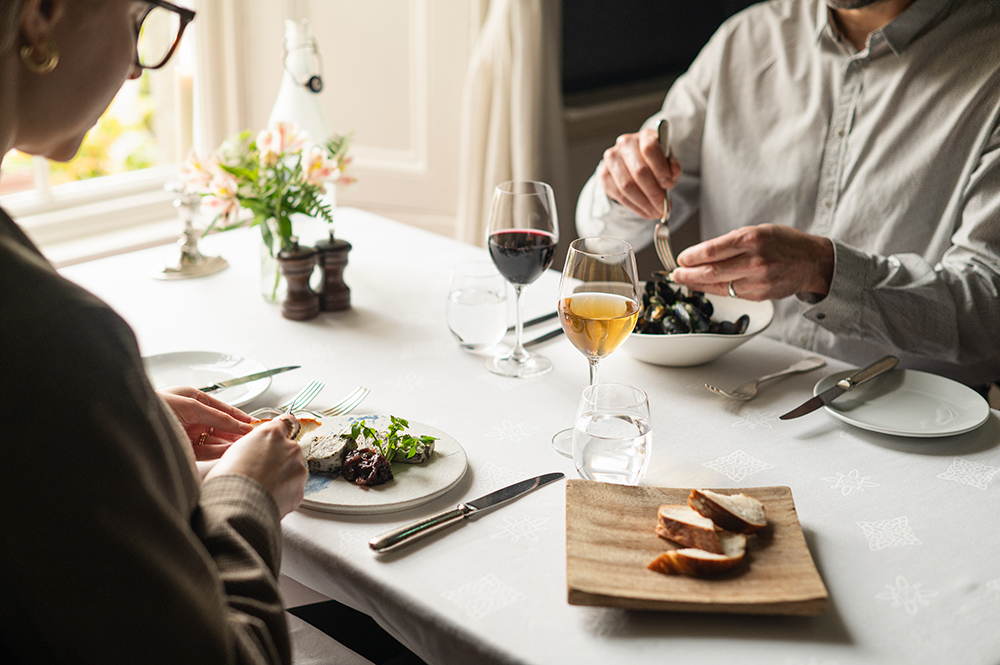
Farm To Table Restaurant:
The farm-to-table movement has profoundly reshaped the Irish culinary landscape, championing sustainability, transparency, and the unparalleled quality of locally sourced ingredients. This concept, deeply rooted in the ethos of environmental stewardship and community support, advocates for a closer connection between farmers, chefs, and consumers. It is a testament to the idea that the shortest path from the soil to the plate not only yields the freshest flavors but also nurtures a more sustainable and ethical food ecosystem.
At the heart of the farm-to-table philosophy is the commitment to sourcing ingredients directly from local farms and producers. This practice ensures that the produce which graces the tables of restaurants and homes across Ireland is not only fresh but also carries with it the unique terroir of its region. Moreover, by minimizing the distance food travels from farm to plate, the movement significantly reduces carbon emissions, contributing to the fight against climate change. The emphasis on local sourcing also bolsters the Irish economy, supporting farmers and small businesses, and fostering a sense of community around food production and consumption.
Transparency in the supply chain is another cornerstone of the farm-to-table concept. This openness about where and how food is produced reassures consumers about the quality and safety of the food they eat, cultivating trust and loyalty. In an age where consumers are increasingly conscious of their environmental footprint and the impact of their dietary choices, the demand for transparent, ethically sourced food has never been higher.
Embracing the farm-to-table movement not only differentiates businesses in the competitive culinary sector but also aligns them with the growing consumer desire for eco-conscious dining experiences. Restaurants, cafes, and producers that adopt farm-to-table practices often find themselves at the forefront of the Irish food industry, leading the charge towards a more sustainable, equitable, and delicious future.
A shining example of farm-to-table success in Ireland is Ballymaloe House in County Cork. Renowned for its pioneering role in the farm-to-table movement, Ballymaloe has been setting the standard for locally sourced cuisine since the 1960s. The establishment's ethos revolves around the use of seasonal, organic produce, much of which is grown on its own farm or sourced from nearby producers. This commitment to quality and sustainability has not only garnered Ballymaloe international acclaim but has also inspired a new generation of Irish chefs and restaurateurs to follow in its footsteps. The story of Ballymaloe House is a testament to the potential of the farm-to-table concept to revolutionize the food industry, promote environmental sustainability, and enrich the culinary heritage of Ireland.
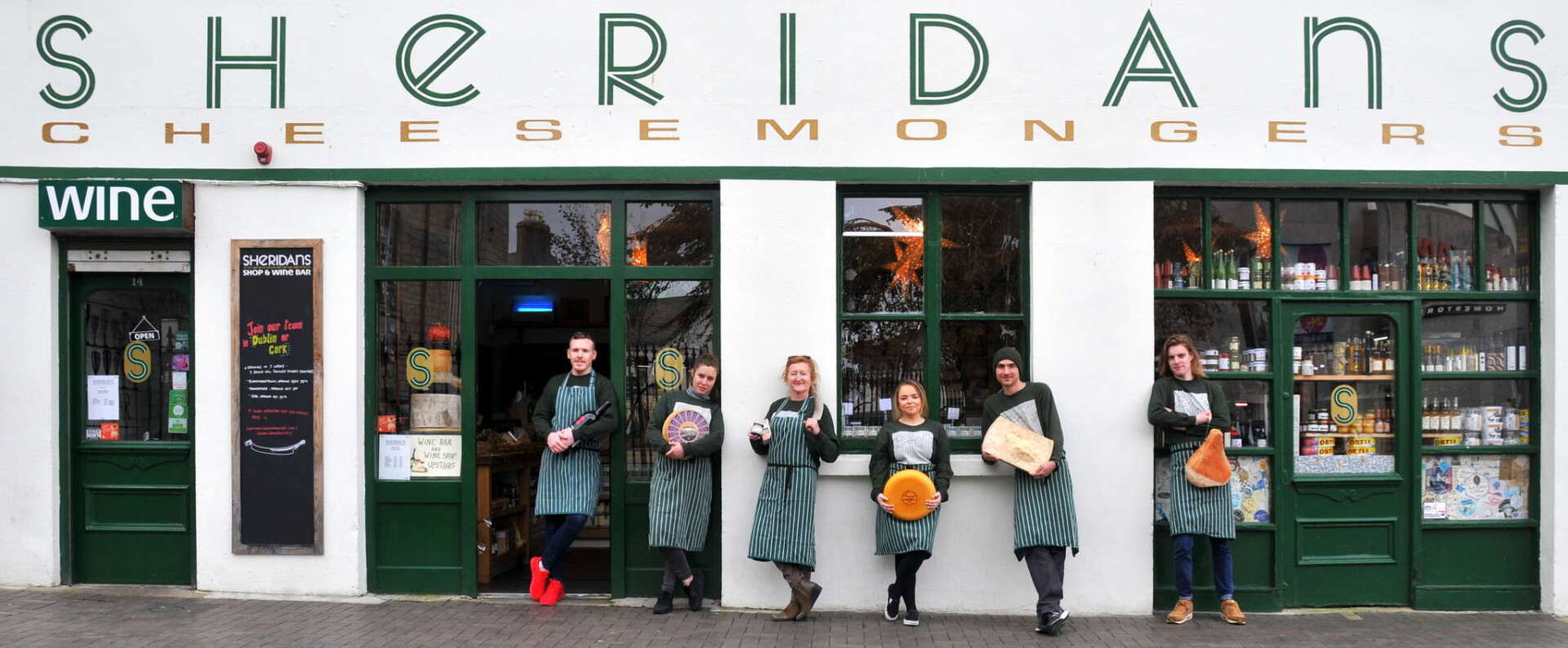
Specialty Food Store:
Opening a specialty food store in Ireland represents an exciting opportunity to immerse oneself in the rich tapestry of gourmet and artisanal food products that the country has to offer. Such an endeavor not only caters to the refined palates of discerning customers but also supports local producers, contributing to the sustainability of the local food ecosystem. By curating a selection of unique, high-quality items, ranging from artisanal cheeses and handmade chocolates to organic produce and craft beverages, specialty food store owners can create a sanctuary for food enthusiasts who are always on the lookout for exceptional culinary experiences.
The foundation of a successful specialty food store lies in the careful sourcing of products. Establishing strong relationships with local producers is crucial, as it ensures access to the freshest and finest goods that reflect the authentic flavors of Ireland. This approach not only champions the local economy but also promotes a farm-to-table ethos, resonating with consumers increasingly interested in the provenance and sustainability of their food. In addition, offering a variety of imported gourmet products can further enrich the store's offerings, providing customers with a global culinary journey under one roof.
Building a niche market for your specialty food store requires a deep understanding of your target customers and their preferences. Tailoring your product range to cater to specific dietary needs, such as gluten-free, vegan, or organic options, can help carve out a unique space in the market. Furthermore, hosting tastings, workshops, and other community events can enhance customer engagement, turning your store into a hub for culinary exploration and education.
Two success stories that epitomize the potential of specialty food stores in Ireland are Sheridans Cheesemongers and Fallon & Byrne:
Sheridans Cheesemongers is a testament to the vibrant culture of artisanal cheese in Ireland. Founded in 1995 by brothers Seamus and Kevin Sheridan, it began as a humble market stall in Galway and has since blossomed into one of Ireland's most esteemed cheese purveyors. Sheridans is committed to showcasing the best of Irish farmhouse cheeses, as well as a carefully selected range of European varieties. Their ethos centers on direct relationships with producers, ensuring that the cheeses they offer are of the highest quality and craftsmanship. Beyond cheese, Sheridans has expanded its offerings to include other gourmet products like chutneys, crackers, and wines, complementing their cheese selection perfectly. Their success has led to the opening of several shops across Ireland, and they also provide an online store, making their exquisite selection accessible nationwide. Sheridans’ influence extends beyond retail, with the annual Sheridans Cheesemongers Irish Food Festival celebrating Irish food culture and artisan producers. Visit their website Sheridan Cheesemongers
Fallon & Byrne operates as a beacon in Dublin’s food scene, embodying the essence of a modern specialty food store while offering an exquisite dining experience. Established in 2006 in the heart of Dublin, Fallon & Byrne combines a gourmet supermarket, a restaurant, and a wine cellar, all dedicated to the celebration of fine food and wine. Their food hall is a treasure trove of artisanal products from Ireland and around the world, ranging from fresh organic produce to premium meats, cheeses, and an extensive selection of international pantry staples. The restaurant and wine cellar offer spaces where food lovers can indulge in the quality ingredients sourced by Fallon & Byrne. Their commitment to providing a comprehensive culinary experience has made them a destination for both locals and tourists seeking the best in Irish and international gourmet offerings. The success of Fallon & Byrne highlights the demand for high-quality, sustainably sourced food and the desire for unique dining experiences in Ireland. Check them out online here

Online Food Delivery Service:
Its important to think outside the box when thinking about a new food business idea. In the fast-paced world of today, where convenience reigns supreme, the online food delivery sector has experienced unprecedented growth, particularly in Ireland. This surge is a testament to the changing consumer behaviors that favor ease, speed, and comfort. With the Irish market embracing digital transformation, setting up an online food delivery service is not just an opportunity but a venture into the future of dining.
Launching an online food delivery service in Ireland requires a multifaceted strategy. Firstly, integrating cutting-edge technology is crucial. This involves developing a user-friendly app and website that ensures a seamless ordering experience. Secondly, streamlined logistics are the backbone of any successful delivery service. Efficient route planning, timely deliveries, and quality control are essential components. Lastly, targeted marketing strategies tailored to the digital-savvy Irish consumer are vital. Utilizing social media, personalized email campaigns, and SEO can significantly increase visibility and attract a loyal customer base.
An exemplary model of innovation in the Irish food delivery landscape is Manna Drone Delivery in Dublin. Manna has revolutionized the concept of food delivery by using drones to transport meals. This not only drastically reduces delivery times but also minimizes the carbon footprint associated with traditional vehicle deliveries. Manna's drone delivery system represents the forefront of logistical efficiency, showcasing what the future of food delivery in Ireland might look like.
Ireland's food delivery sector is demonstrating significant promise, supported by impressive statistics and forecasts that paint a picture of a burgeoning industry. As the Irish market adapts to the digital age, the online food delivery segment has seen substantial growth, with future projections signaling even greater expansion. In the context of Ireland and the broader European market, the online food delivery sector showcases robust growth and substantial market potential. Specifically, the European online food delivery market, inclusive of Ireland, has been experiencing significant growth. In 2022, the market size reached USD 95.69 billion and is projected to grow to USD 184.44 billion by 2028. This growth represents a compound annual growth rate (CAGR) of 11.5% during the forecast period, highlighting the sector's dynamic expansion and the increasing consumer preference for online food services.
This expansion reflects broader trends in consumer behavior and technological adoption, such as the rise of mobile applications and online payment methods, which have made food delivery services more accessible and convenient. The sector's growth is supported by the increasing prevalence of smartphones, advancements in technology like 4G and 5G networks, and a heightened consumer awareness of digital payments. These elements contribute to a more secure, efficient, and user-friendly experience for customers, further driving the market's expansion.
Moreover, the online food delivery industry's evolution is marked by the emergence of various business models, including third-party platforms like Just Eat and Uber Eats, and pure quick commerce players such as Getir and Gorillas. These companies have been receiving substantial investments, indicating strong market confidence and the potential for further innovation and growth within the sector (Source: Europe Online Food Delivery Market Report 2023)
For entrepreneurs and businesses in Ireland looking to venture into the online food delivery service, these trends and statistics underscore the sector's lucrative nature and its potential for sustained growth. The increasing consumer demand for convenience, coupled with the technological advancements in food delivery services, presents a promising opportunity for new and existing players in the market.
REGULATORY REQUIREMENTS AND LICENSING
Before commencing operations, every food business must register with the appropriate competent authority. The type of business you're starting and whether you handle or process foods of animal origin, such as meat, poultry, or fish, determine with whom you register. The primary competent authorities include the local environmental health office of the Health Service Executive, the Department of Agriculture, Food and the Marine, the Local Authority Veterinary Service, and the Sea-Fisheries Protection Authority. This step is crucial for all food business operators, including those operating from home or mobile units like food trucks​
Food Safety Management - HACCP A critical component of the regulatory requirements is the development of a food safety management system based on the Hazard Analysis and Critical Control Point (HACCP) principles. This system is designed to identify, evaluate, and control hazards that are significant for food safety. The FSAI offers guidance and resources to help businesses implement a HACCP system effectively​
Food Hygiene and Training In addition to HACCP, food business operators must understand the basics of food hygiene and ensure that their staff undergoes appropriate food hygiene training. This training is fundamental to maintaining high standards of food safety and preventing foodborne illnesses​
Traceability and Allergen Declaration Traceability systems and the declaration of food allergens used as ingredients are also mandatory. These measures are essential for food safety, allowing for the quick withdrawal of products in case of safety concerns and helping to inform consumers about potential allergens in their food​
Compliance and Other Considerations Compliance with food legislation extends to understanding employer and health & safety regulations, engaging in food safety training, and ensuring that food establishments are approved and meet inspection requirements. The National Hygiene Partnership, the National Standards Authority of Ireland, and Fáilte Ireland offer resources and tools for food businesses to navigate these requirements effectively​
The FSAI and BusinessRegulation.ie provide extensive resources, guidance, and advice for starting and operating a food business in Ireland. By following these regulations and engaging with the appropriate authorities and resources, entrepreneurs can ensure their food business is compliant, safe for consumers, and poised for success.
For a comprehensive guide on starting a food business in Ireland, including detailed regulatory requirements and licensing processes, visit the FSAI website and BusinessRegulation.ie

Funding A Food Business In Ireland
Embarking on a food business venture in Ireland offers a myriad of funding opportunities designed to support entrepreneurs at every stage of their journey. From seed capital for startups to expansion grants for growing businesses, Ireland's robust ecosystem provides a variety of financial avenues to explore. Understanding these options is crucial for securing the necessary capital to launch and sustain a successful food enterprise.
Local Enterprise Offices (LEOs) across Ireland are instrumental in nurturing small businesses. Offering both financial supports, such as feasibility study grants, priming grants for startups, and business expansion grants, LEOs also provide invaluable non-financial supports including training, mentoring, and business advice. Tailored specifically to meet the needs of local businesses, LEOs serve as a vital resource for entrepreneurs looking to navigate the complexities of starting and scaling a food business.
Bord Bia, the Irish Food Board, is another key player in the food sector, offering resources and programs to enhance the competitiveness of Ireland's food and horticulture industry. While Bord Bia primarily focuses on marketing and promotion, its initiatives indirectly support funding efforts by helping businesses expand their market reach and increase sales, which in turn, can make them more attractive to potential investors.
Enterprise Ireland, known for supporting High Potential Start-Up (HPSU) businesses, offers a range of financial supports designed to aid in the creation and growth of innovative, export-oriented companies. Through competitive start funds, innovation vouchers, and HPSU funding programs, Enterprise Ireland aims to facilitate international growth and innovation within Irish businesses, making it an essential resource for food entrepreneurs with ambitious growth plans.
In addition to government-backed initiatives, several private funding options exist, including venture capital investments and angel investors who are particularly interested in the thriving food industry. These private funding sources often seek innovative businesses with strong growth potential, offering not only capital but also valuable expertise and networks to help startups scale.
Crowdfunding platforms also present a unique opportunity for food businesses to raise funds while building a community of supporters. By presenting their business idea directly to the public, entrepreneurs can gain early customers and advocates, along with the capital needed to start or expand their operations.
In summary, Ireland's supportive ecosystem for food businesses encompasses a wide range of funding options. From government grants and loans to private investments and crowdfunding, the keys to unlocking these opportunities lie in thorough research, a solid business plan, and a clear understanding of the specific requirements and benefits of each funding source. For food entrepreneurs in Ireland, the journey from idea to successful business is supported by a wealth of resources designed to foster innovation, growth, and sustainability in the vibrant food sector.
Here is a list of usefull links for a wide range of bodies who can help with funding or offer further advice on funding:
| Organization | Description | Contact Information |
|---|---|---|
| Local Enterprise Offices (LEOs) | Provides advice, information, and support for starting up or growing your business. | https://www.localenterprise.ie/ |
| Enterprise Ireland (EI) | Responsible for the development and growth of Irish enterprises in world markets. | https://www.enterprise-ireland.com/en/ |
| IDA Ireland | Focuses on the attraction and development of foreign investment in Ireland. | https://www.idaireland.com/ |
| InterTrade Ireland | Offers cross-border business funding, information, advice, and support. | https://intertradeireland.com/ |
| Údarás na Gaeltachta | Responsible for the economic, social, and cultural development of the Gaeltacht. | https://www.udaras.ie/en/ |
| Science Foundation Ireland (SFI) | Funds research in science, technology, engineering, and mathematics to support industry and employment. | https://www.sfi.ie/ |
| Microfinance Ireland | Provides small loans to small businesses and startups through the Government’s Microenterprise Loan Fund. | https://microfinanceireland.ie/ |
| Strategic Banking Corporation of Ireland (SBCI) | Offers financial supports to Irish SMEs to address market failures in the Irish credit market. | https://sbci.gov.ie/ |
| European Small Business Portal | Gathers EU information and resources for SMEs, including practical advice to policy issues. | EU Portal |
| Citizens Information | Provides information on various employment topics including starting a business. | https://www.citizensinformation.ie/en/ |
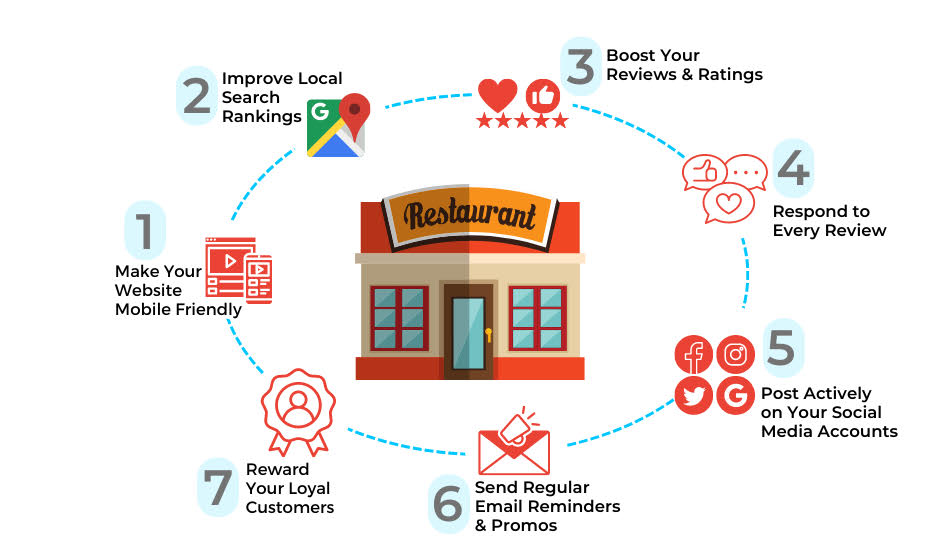
Innovative Marketing Strategies for Food Entrepreneurs
Innovative marketing strategies can set your food business apart from the rest. Consider creating unique selling propositions that highlight what makes your offerings special. This could be focusing on locally sourced ingredients, offering customizable menus, or providing eco-friendly packaging solutions. By showcasing these unique aspects, you can appeal to the values and preferences of your target audience. Moreover, collaborating with local influencers or food bloggers can help amplify your reach and credibility. Host tasting events, cooking workshops, or pop-up experiences to engage with your community and generate buzz around your food business. Word-of-mouth marketing remains a powerful tool, so encourage satisfied customers to share their experiences online and with friends.
Utilizing Social Media Platforms Effectively Social media platforms are invaluable tools for promoting your food business in Ireland. Create visually appealing content showcasing your menu items, behind-the-scenes glimpses of your kitchen, and customer testimonials. Platforms like Instagram and Facebook allow you to interact directly with your audience, respond to queries, and build a loyal following. Utilize targeted advertising on social media to reach potential customers in specific geographic locations or with particular interests. Engage with trending food hashtags, participate in online challenges, and collaborate with food influencers to expand your reach further. By consistently posting high-quality content and engaging with your audience, you can foster a strong online presence for your food business.
When promoting your food business in Ireland, remember to stay authentic to your brand voice and values. By implementing creative marketing strategies and leveraging social media effectively, you can elevate your business and attract a steady flow of customers.
Conclusion
In Ireland's bustling food industry, establishing a successful enterprise demands not only a passion for culinary excellence but also strategic planning and an insightful understanding of consumer desires. The diverse array of food business ideas highlighted previously, ranging from food delivery services to innovative food truck ventures, offers a rich canvas for entrepreneurs eager to make their mark. Each concept brings unique opportunities and challenges, yet the common thread for success lies in leveraging local resources, prioritizing sustainability, and ensuring every customer encounter is unforgettable.
Caterboss steps in as a pivotal ally for those embarking on this exciting journey. With our extensive experience assisting numerous Irish food startups to flourish, Caterboss is your go-to source for expert advice tailored to the intricate needs of the food business landscape. We specialize in guiding new entrepreneurs through the maze of catering equipment selection, offering tailored finance solutions, and much more. Our commitment extends beyond mere transactions; we aim to foster enduring relationships, empowering your venture from inception to growth and beyond.
Remember, the essence of thriving in the food industry transcends the mere act of offering delectable dishes; it's about crafting experiences that resonate with patrons, prompting them to return time and again. By staying ahead of market trends, nurturing innovation, and overcoming obstacles with resilience, your food business is set not just for transient success but for enduring legacy and impact.
Choosing to venture into catering services, launch a dynamic food truck, or inaugurate a welcoming café, the journey towards dominance in the competitive food business arena is fuelled by your zeal, perseverance, and adaptability to evolving tastes and preferences. With Caterboss by your side, offering a wealth of knowledge, support on catering equipment essentials, and flexible financing options, your dream of a thriving food business is well within reach. Let's turn your culinary aspirations into a sumptuous reality, together.
Useful Links & Information:
Download: FSAI Business Start-up Information FactSheet
Supports For Businesses: http://www.businessregulation.ie/supports-for-business/
Resources, Podcasts, Information & more: https://www.thinkbusiness.ie/
Contact Information for your Local HSE for Food Enquiries: https://www.hse.ie/eng/services/list/1/environ/contact.html
Innovative Business Podcasts: The Diary Of a CEO
